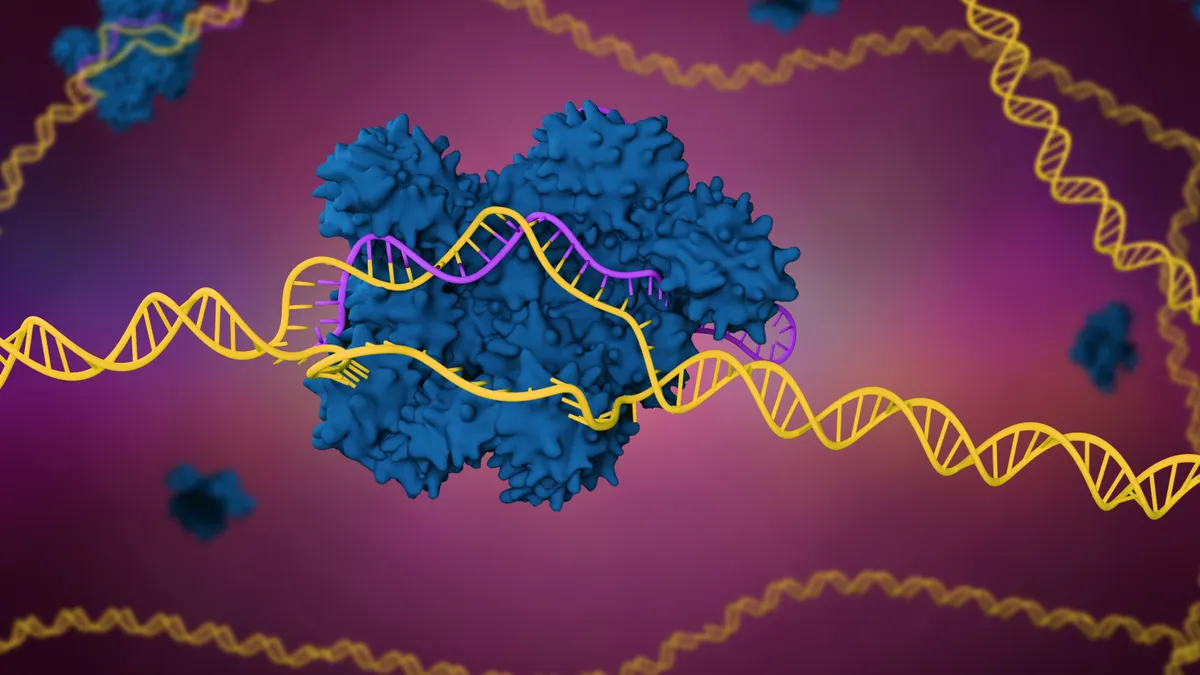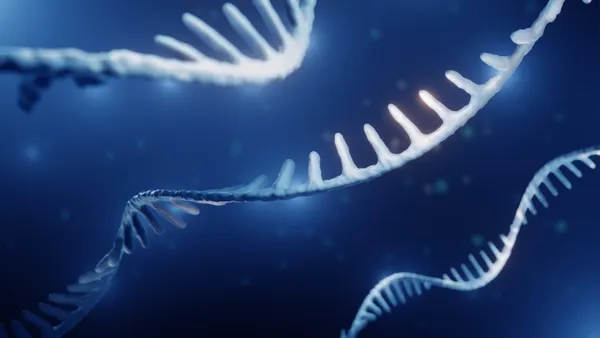Dive Brief:
- An “off-the-shelf” cancer cell therapy developed by Caribou Biosciences induced responses in more than 80% of enrollees in an early-stage trial in lymphoma, similar to the response rates seen with personalized treatments manufactured from patients’ own immune cells, the company said Monday.
- The trial data will support plans by Caribou to run a Phase 3 trial that will evaluate its treatment’s impact on survival and report results in 2026. The results offer the chance at a turnaround for Caribou, which initially reported disappointing findings but has since refined its strategy by using donor cells more compatible with patients’ immune systems.
- Caribou has twice cut staff over the last two years to extend its cash reserves, and decided against pursuing autoimmune cell therapy as many of its peers have done. Company shares rose by as much as 40% in Monday morning trading before settling into a smaller double-digit gains.
Dive Insight:
If successful, donor-derived or “allogeneic” cell therapies could prove attractive to patients and physicians by reducing the complexity and waiting times involved in making treatments out of a person’s immune cells. But many companies have tried to prove the technology could yield a more convenient alternative to these “autologous” treatments, only to see their products underwhelm in clinical testing.
Caribou believes it may have found an answer, though. By “matching” proteins called human leukocyte antigens, or HLAs, on donor cells to the patients in its trials, Caribou hopes that its treatments won’t be shut down by the immune system. The data disclosed Monday are the first evidence in support of that theory.
The data came from two groups of enrollees in a trial called Antler, which tested the treatment, called vispacabtagene regedleucel or vispa-cel, in people whose diffuse large B-cell lymphoma resisted first-line treatment or returned afterward.
As of a Sept. 2 data cutoff, 82% of people with four or more “matched” HLAs responded, 64% went into total remission, and 51% of them lived 12 months without their disease progressing. A second cohort that got “optimized” CAR-T cells had similar results. In that study cohort, 86% responded, 63% had a complete remission, and 53% lived 12 months without disease progression.
In both groups, more than half were still responding to treatment as of the data cutoff date.
While cross-trial comparisons can be misleading, Gilead’s marketed lymphoma therapy Yescarta had an 83% response rate and a complete remission rate of 65% in a similar group of patients.
Caribou said vispa-cel recipients had low rates of immunological and neurological side effects in the study, indicating the treatment could be administered in outpatient settings. People receiving autologous cell therapy often have to stay in a hospital for close monitoring because of such side effects.
“This clinical dataset demonstrates vispa-cel’s efficacy and durability are comparable to autologous CAR-T therapies, yet its off-the-shelf availability and favorable tolerability profile make it well suited for outpatient administration at both large academic centers and sophisticated community hospitals,” said Mehdi Hamadani, a trial investigator and professor at the Medical College of Wisconsin, in a statement.
The results “validate” Caribou’s HLA-matching approach, wrote Leerink Partners analyst Mani Foroohar in a Monday note to clients. The findings also represent “the upside case for vispa-cel,” which would be a profile “on par” with personalized treatments while offering logistical advantages and lower production costs, he added.














